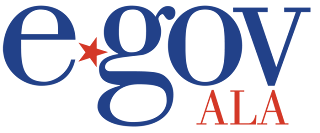
Are you looking for tips and best practices on how to make your government websites more functional? Check out the American Library Association (ALA) E-government online toolkit. The toolkit contains ten sections of E-Government best practices, tips, guidelines and checklists.
One interesting section, Civic Participation & E-Government, presents two models electronic citizen participation in government. The first is a structure in which government offers citizens the opportunity to access current, public documents and proposed policies so they can evaluate and discuss them. The other model stresses government consulting citizens for opinions on how to improve current policies and administrative procedures. Both models encourage citizen participation, not merely offering information. Suggestions offered for implementation of either model include:
- Connect citizens to interactive government websites that solicit citizen feedback and participation in policy making, design and innovation.
- Educate citizens about their civic role and provide opportunities for them to create their own mediated messages and interact with government agencies and officials using tools that fit individual or specific community needs.
- Provide citizens the ability to create a “My E-Government” page so they can personalize their interaction with government agencies and officials.
- Initiate “online town halls” for E-democracy which include agenda setting and discussion of public issues.
Another section of ALA's toolkit, Building E-Government Partnerships, stresses municipal governments networking with corporate and nonprofit businesses, educational institutions, and social services to offer centralized resources and forums to citizens. Roles these partners can play include electronic infrastructure improvement, training, citizen advocacy, assistance, translation, and assessment. Such partnerships can be sustained over the long-haul to ensure greater citizen exposure to e-government services. There is much more the ALA e-government toolkit has to offer. As is the case with all toolkits, the real value only comes if utilized, so check it out!
